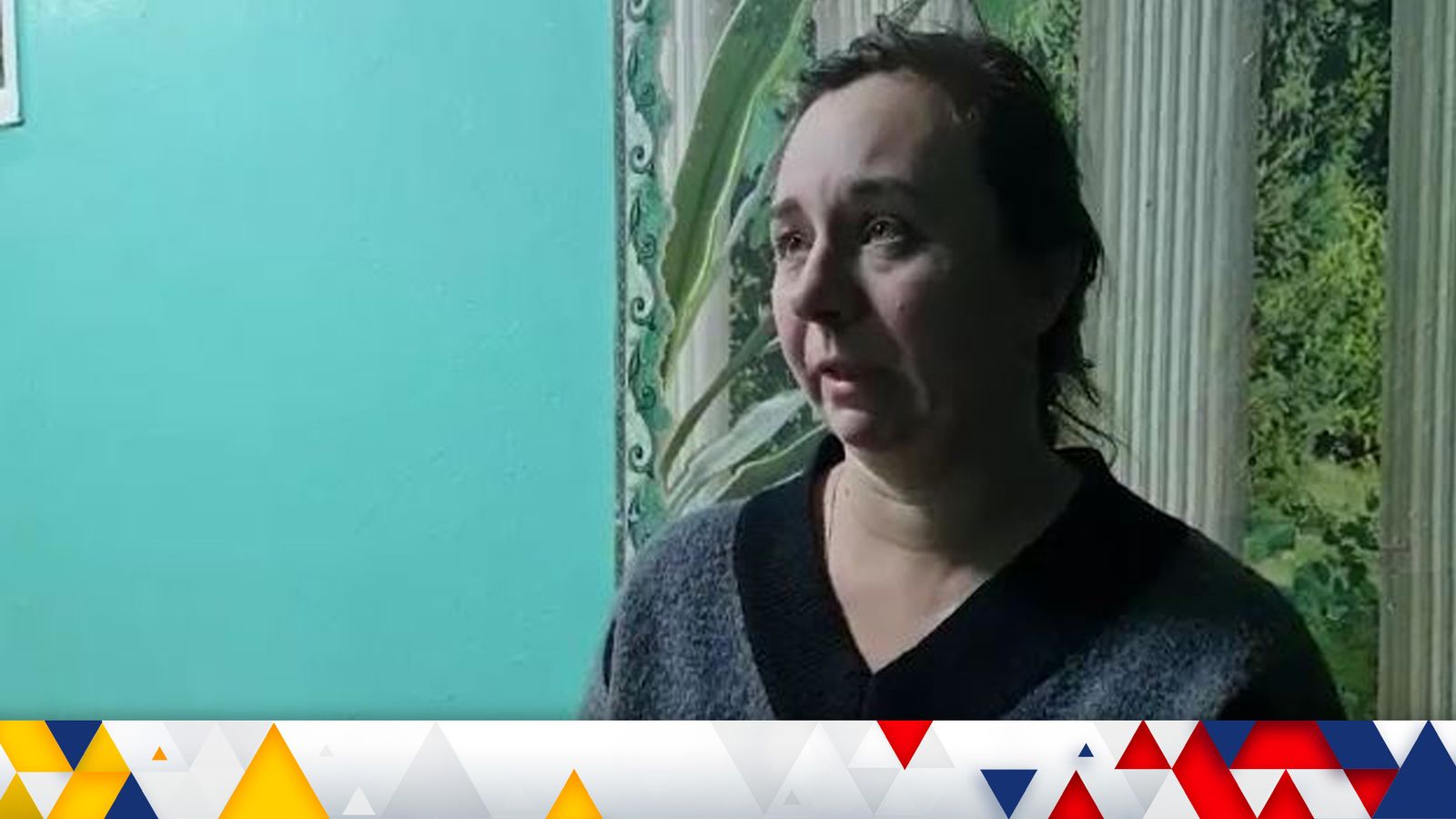A Ukrainian woman has said her husband’s body was trapped for days after their house was destroyed – and that she now doesn’t know if her daughter is dead or alive.
The woman fled the besieged city of Mariupol, which has been cut off from water, food and power.
“We were shelled, the house is destroyed, my husband is dead,” she said, without giving her name.
“They couldn’t get his body out for three days. When we were evacuated it took three days.
“The lads who led us out promised to bury him and would later tell me where.”
She broke down as she admitted: “My child is on the other side of the city – I know nothing about her – is she even alive?”
The woman is now in Donetsk, several hours north.
What impact will the US ban on all Russian oil imports have and which countries will be most affected?
Ukraine war: In the midst of pounding mortars, remarkable kindness is shown by people fleeing the violence
Ukraine war: Poland offers all its MIG-29 fighter jets to US in plan to provide aircraft to Kyiv
Live updates on Russia’s invasion of Ukraine
A six-year-old girl named Tanya has also been pulled from rubble in Mariupol and died from dehydration, President Zelenskyy said on Tuesday.
People in the city have been forced to collect water from streams or melting snow, while some bodies lay uncollected in the street such is the intensity of the bombardment.
An evacuation route out of Mariupol is again said to have come under fire again on Tuesday, after several days of failed attempts to give people safe passage.
In occupied Kherson, 220 miles west, a witness said Russian troops had been firing on cars and people.
Key developments in the Ukraine war:
• Ukraine claims senior Russian general has been killed in fighting near Kharkiv
• Zelenskyy accuses Russia of violating earlier humanitarian corridors
• Russia has warned it could cut its gas supplies to the West through the Nord Stream 1 pipeline
• Talks between Ukraine and Russia held in Belarus
• New laws to help target Russian oligarchs pass Commons
Please use Chrome browser for a more accessible video player
“We are blocked in the city – we can’t go anywhere,” Natalia Bobrysheva told Sky News. “We can’t go even to Poland or any more safer city.
“We have electricity and water – but as for the food and medicines we don’t have enough. Each day we have less and less.
“They are just shooting to the cars, to the people,” she added. “We can’t go anywhere.”
Kherson last week became the first major city captured by the Russians.
Experts say the southern cities are important to cut Ukraine off from the sea and link annexed Crimea with eastern areas long controlled by Russian-backed rebels.
Desperate scenes also continue in the relative peace of western Ukraine, where masses of people have fled.
“Encampments” have been set up outside Lviv train station as people queue to get on packed trains to Poland, says Sky’s Deborah Haynes, who’s at the scene.
Refugees clutching whatever they can carry huddle round fires in metal bins as volunteers give out food and blankets.
“Every single person here has been wrenched from their lives; they’re all so emotional and frightened about the future,” says Haynes.
One “distraught” woman had fled Dnipro, in the east, with her three daughters.
Her husband told her to flee while he joined the country’s defence force and told her to “look after the children because they’re the future”.
More than two million have now left the country since the invasion started two weeks ago, according to the United Nations.
Poland has taken in the most – more than a million – but one of Europe’s poorest nations, Moldova, has also helped about 80,000.
Rows of camp beds line a sports hall at one centre in the capital, Chisinau, as volunteers look after several hundred refugees from Ukraine’s Roma community.
Most come Odesa – and have left before the Russians turn their attentions to the famous Black Sea city of over a million, says Sky’s Mark Stone.
He says volunteers are showing “remarkable” organisation and stoicism, but with more refugees expected they will soon need “much more help”.






